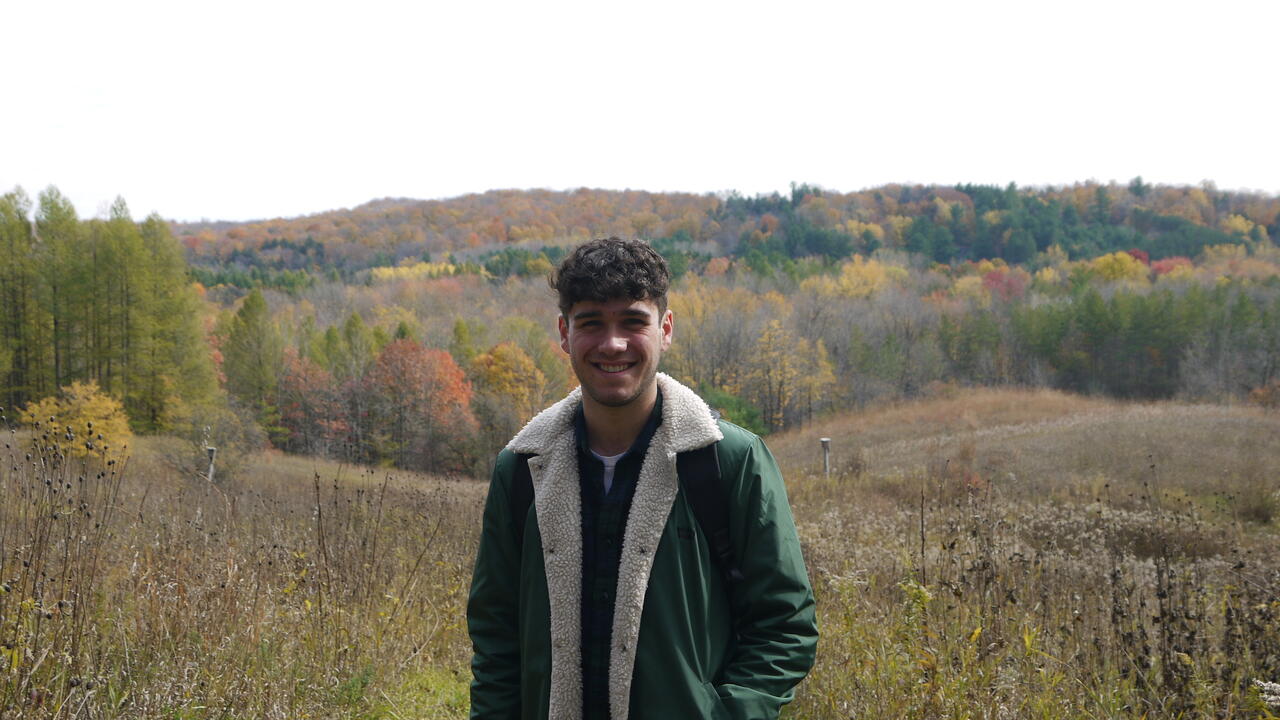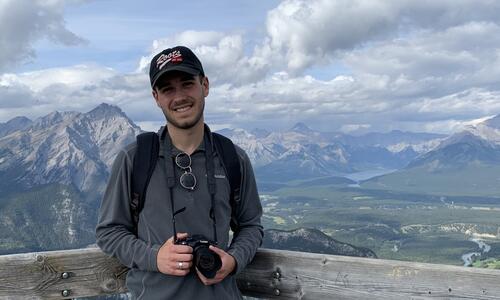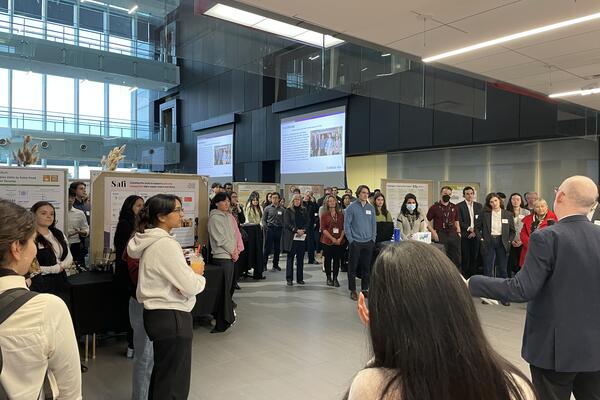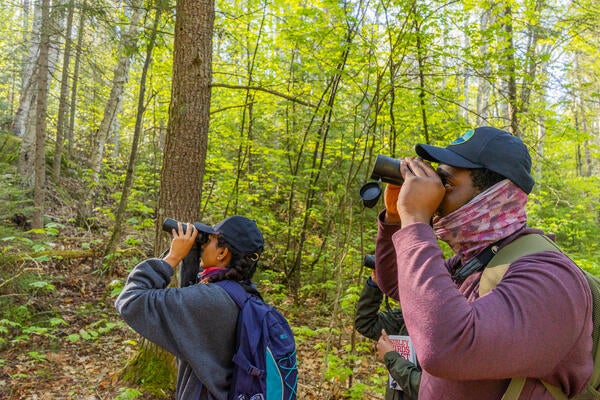
A rare gift
Funding provided by staff and faculty helps a determined Environment student land his ideal job

Funding provided by staff and faculty helps a determined Environment student land his ideal job
By Beth Bohnert Office of AdvancementAs he approached his first co-op term in January 2020, Ethan Leiher knew what he wanted in a job. A student in Waterloo’s School of Environment, Resources and Sustainability, he hoped to gain hands-on experience with an organization dedicated to protecting nature. Ethan tackled his job search with determination and thought he’d found the perfect position — until a lack of funding threatened his plans.
Opting to find a job on his own, Ethan set his sights on working for rare, an urban land trust and environmental institute near Cambridge, Ontario. He knew that non-profits like rare can be limited by financial constraints, so he applied to Eco Canada for funding to help cover 50% of his salary. His commitment impressed Jenna Quinn, rare’s Program Scientist.
“That stood out, both that he took the initiative and that he recognized who we are as a charity and what our limitations are,” Quinn said.
There was certainly work available at rare. Among other projects, the organization was conducting research that could help protect forests from emerald ash borer, an invasive beetle that has killed millions of ash trees across North America.
Hundreds of insect samples needed to be processed in a short amount of time. But because the organization normally hires students only during the summer, there was no funding in place to match the money from Eco Canada.
Despite his disappointment, Ethan remained undaunted. If there was no funding, he would volunteer at rare, although the prospect of working a 40-hour week on top of the part-time job that covered his expenses was daunting.
Fortunately, things didn’t come to that. Thanks to the generosity of staff and faculty in the Faculty of Environment, Ethan’s salary was covered by a Global Citizen Internship. These internships are the dream of Dean Jean Andrey, and build on the Faculty’s longstanding commitment to partnerships that align with its values and strategic priorities.

Protecting nature is vitally important to Ethan and he’s planning for a career with that goal in mind, possibly working in Canada’s national park system. Here’s Ethan in Banff, Alberta.
The internships enable Environment students to apply their knowledge through paid positions at local and global non-profit organizations. It’s a model that benefits everyone involved: students gain opportunities for meaningful work, non-profits benefit from their skills and enthusiasm, and some of society’s most pressing problems are addressed.
In collaboration with Waterloo’s co-op program, and with significant support from Environment alumni, corporate partners, staff and faculty, more than 40 internships have been made available to students like Ethan in the past three years.
Funding in place, Ethan began his term at rare, working closely with entomologist and Waterloo PhD student Justin Gaudon (BES '13).
“It was my first co-op and I didn’t have a lot of experience. But people like Justin were willing to teach me. I was working and learning at the same time,” he said.
Much of Ethan’s work involved identifying and sorting insect samples, then preparing them to be DNA barcoded. All under a tight timeline – and in the middle of a pandemic.
Day after day, he worked alone in one of rare’s research facilities, even after both rare and the University gave him the option of quitting due to COVID-19 limitations.
“We’ve never had a co-op student so dedicated, who worked so independently and so diligently,” Quinn said. “I honestly don't know if we would have made the deadline without Ethan.”
“That’s why it’s wonderful that the Faculty of Environment was able to fund this, and obviously we're thrilled to be able to pay Ethan for the work that he did,” she added.
ETHAN LEIHER, Student Award Recipient 2020
Looking at samples of hundreds of species under a microscope gives you an appreciation for the biodiversity that we have here in Canada. Just look at your backyard; you'd be surprised at what's in there.
Despite all the challenges, Ethan says he loved his co-op term. He gained the work experience he was looking for and a new interest in research.
And what would he tell the donors who made this co-op term possible?
“This was an amazing job that I'm very grateful to have had. Thank you for giving me that opportunity.”

Read more
Waterloo’s first i-Capstone project is reshaping collaboration to propose solutions to sustainability challenges

Read more
A field course to Panama offers Faculty of Environment graduate students the opportunity to immerse in real-world water management challenges

Read more
Five Faculty of Environment students are the first Waterloo participants in a specialized field experience hosted by FREED
The University of Waterloo acknowledges that much of our work takes place on the traditional territory of the Neutral, Anishinaabeg, and Haudenosaunee peoples. Our main campus is situated on the Haldimand Tract, the land granted to the Six Nations that includes six miles on each side of the Grand River. Our active work toward reconciliation takes place across our campuses through research, learning, teaching, and community building, and is co-ordinated within the Office of Indigenous Relations.